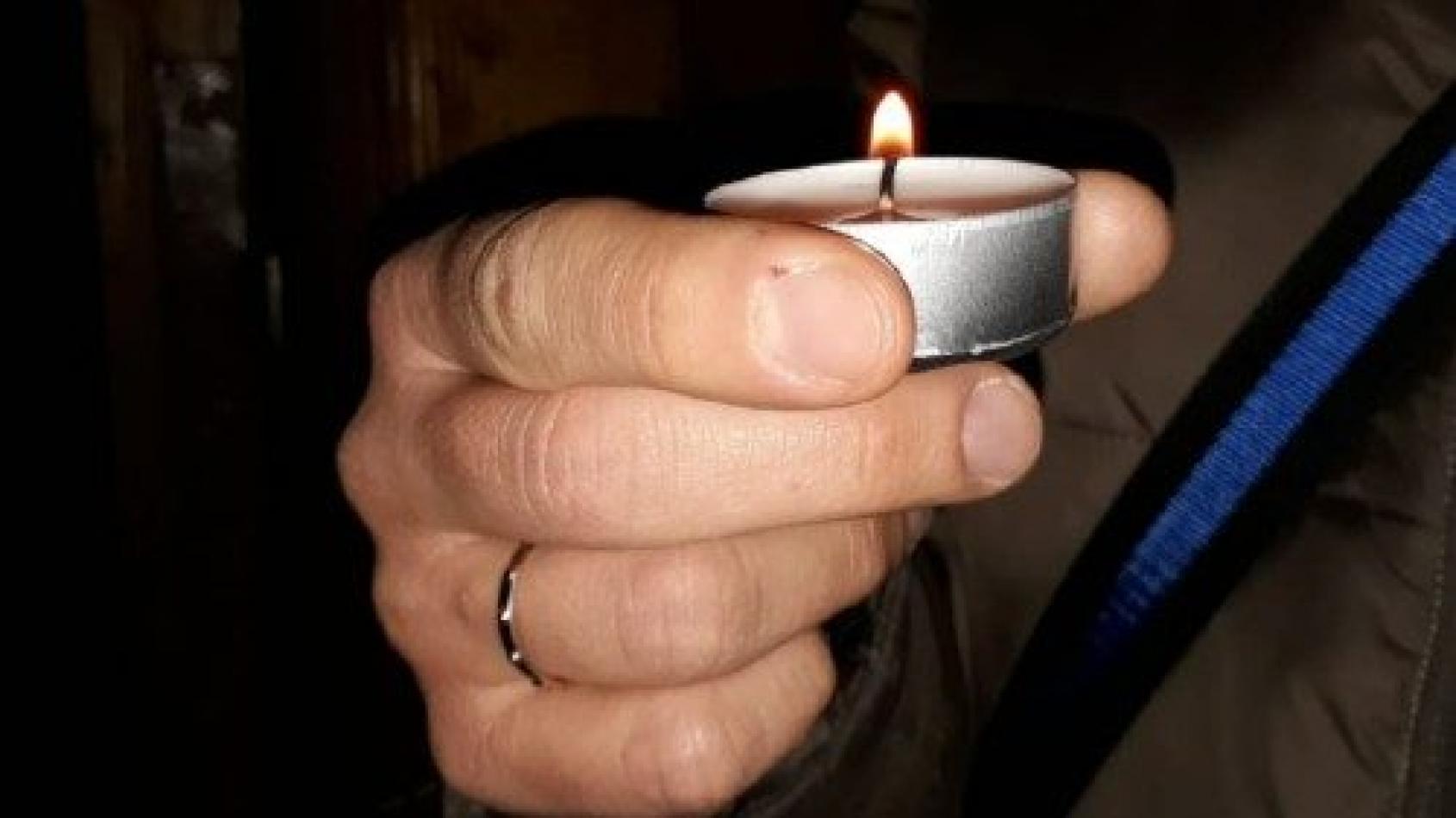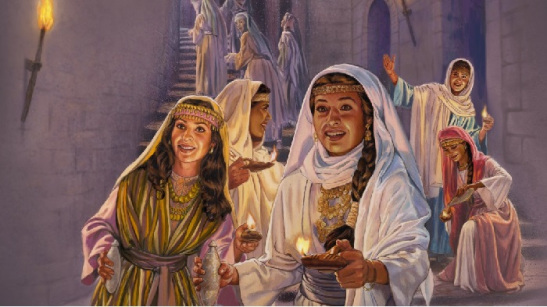Daniel Comboni
Comboni Missionaries
Institutional area
Other links
Newsletter
In today’s parable, there are some strange, unlikely, even contradictory details. I list some of them: why don’t the foolish virgins join the wedding with the little oil they still have? What goes through their minds to goto the market to buy some oil? At midnight, the markets are closed. The wise virgins are introduced with great honor at the wedding feast, but we would want to drive them away. We would not know what to make of soselfish friends.
GOSPEL REFLECTION
Matthew 25:1-13
In today’s parable, there are some strange, unlikely, even contradictory details. I list some of them: why don’t the foolish virgins join the wedding with the little oil they still have? What goes through their minds to goto the market to buy some oil? At midnight, the markets are closed. The wise virgins are introduced with great honor at the wedding feast, but we would want to drive them away. We would not know what to make of soselfish friends. The recommendation which concludes the story: “So stay awake, for you do not know the day nor the hour” (v. 13) has nothing to do with the parable because even the wise virgins slept, and none has been vigilant.
Even the figure of the groom (who clearly is Christ) is not at all sympathetic. He is a strange one. He arrives at an inappropriate time. Then on the very day on which he should appear friendly with everyone, he starts to threaten and chase people out for no fault of their own. On his feast, we all would participate withapprehension.
To understand these strange details, it must be remembered, first, that we are dealing with a parable. In these stories, not all is logical. Sometimes elements are introduced that are designed solely to provoke the imagination of the listener, to keep them interested and attentive, to make it easier for them to assimilate the message. The details of our dramatic parable are due—as I have said on other occasions—to the typicaloriental taste for impressive images. Attention must not be focused on them but on the central teaching.
There is another important factor to keep in mind in order to understand the parable: Jesus’ original story was edited by Matthew. He has adapted it to the catechetical needs of his communities. We’ll see how.
The wedding party in Israel was very solemn and lasted about a week. On the first day, the groom went to the house of his in-laws to take the bride with him. The bridesmaids were there to welcome him. They are the unmarried girls of the village who were singing, dancing, and if it was night, holding torches, to accompany the unmarried girls of the village who were singing, dancing, and if it was night, holding torches, to accompany the friend who was getting married to her new home where the wedding party was taking place.
Jesus takes his cue from this ceremony—which he certainly has attended and participated often—to compose a parable with which to mediate his message.
If one keeps in mind that both the number five and the virgins are symbols of the people of Israel and thatthe number ten indicates the totality, it is easy to grasp the meaning that the parable had on the lips of Jesus.The ten virgins represent the people of Israel awaiting the Messiah (the groom): a part of this people (the fivewise virgins) is prepared to accept and enter into the Christian community, while another part (the five foolish virgins) is not attentive to God’s plans, are unfaithful and are kept out of the banquet hall.
Fifty years later, when Matthew writes his Gospel, the historical, cultural and religious contexts have changed. Christian communities have arisen in the pagan world. The problems faced by the disciples are different. In the new situation, one feels more than ever the need of the illuminating word of the Master. Matthew, a true pastor of souls and attentive to the spiritual needs of his church, retakes the parable of Jesus and once again, offered it, while adapting it to the new reality.
What were the problems of the Christian communities at the end of the first century A.D.?
We have seen in the Second Reading that in the early decades of the Church’s life, there was a widespread conviction that the Lord would return soon “on the clouds of heaven” to take his disciples with himand introduce them in glory. But nothing had happened. The feverish expectation had been disappointing. The first doubts had arisen, and fatigue and discouragement subtly entered in the communities. As a result, many defections among Christians were recorded. Some apostate directed ironic arguments to his former brothers in faith: “What has become of his promised coming? Since our father in faith died, everything still goes on as it was from the beginning of the world” (2 P 3:4).
Disappointed by the failure of the Lord’s return, many resumed the dissolute life they had led before baptism. They returned to take an interest in the trade and business. They resumed their arrogant attitudestowards their employees and exploited slaves, just as if they had never heard the Gospel of Christ. They wereplunged into a dangerous spiritual slumber; they were at the mercy of the most complete blunting of consciousness.
Matthew rewrites the parable to remind those people who let their torch go unlit. It is to shake those who let their own faith be reduced to a smoldering wick. The scene is that of God’s judgment, the colors are dark, the language is hard, but it’s the situation that calls for it. There is also an added exhortation of Jesus which he has certainly delivered on another occasion: “So stay awake, for you do not know the day nor the hour” (v. 13), but the evangelist considers it appropriate to place it in this context.
In the first part of the parable (vv. 1-5), the characters are introduced and the preparations for the feast are described.
In the new version—the one adapted by Matthew for his community—the ten virgins do not indicate Israel any longer, but the Church that awaits the return of her Lord, her Bridegroom.
Thus, there is also a logical explanation for the fact that the bride does not appear: the bride is the Christian community, represented by the ten virgins.
“Five of them were foolish and five were wise” (v. 2).
A theme dear to Matthew is resumed here. In the Christian community, the good and the evil live together; the wheat and the weeds grow in the same field; the good ones and the bad ones are on the same network; clean and dirty people sit at the same table; the wise and the foolish are side by side.
Note also that the foolish virgins are mentioned first because they are causing concern. They represent the Christians at risk, those disciples who were asleep and behave like frivolous, vain, airhead girls who lose their heads over clothes, jewelry, perfume, looks and who neglect the essentials. They focus their lives on what is transient; they neglect the true values; they forget the one thing necessary, that which Mary had chosen being at the Lord’s feet and becoming his disciple (Lk 10:38-42).
The vigilant virgins are instead Christians who do not let themselves be seduced by vanity and remainfocused on what is important in life.
The parable is re-proposed to Christians today, to help them discover and recognize the “foolish virgin” that is in each of them. Often it is she who—without their noticing her—takes them by the hand, advises them, guides them, gives suggestions and orients them toward foolish choices.
In the second part of the parable (vv. 6-9), there is, first of all, the cry of someone who, more vigilant than others, is the first to guess that the bridegroom is coming. Then the groups are compared to the way they live the time of waiting.
The puzzling behavior of the wise virgins, who refuse to share their oil with their companions, contains avaluable message. In the past, you could hear the spiritual masters repeat the phrase: “The important thing is to die in the grace of God,” almost enough to have a good feeling, a good thought at the end of life, to put in order a poorly managed life; but a ruined life is not rebuilt at the last minute and no one can lend part of one’s own life. The important thing, therefore, is not to die but to live well. It is true that God always finds a way to save the person, but in the end everyone will end up with what one did: with a solid and magnificent palace orwith a papier-mache castle, which will not stand the fire of God’s judgment, when he “will test the work of everyone” (1 Cor 3:13-17).
The third part (vv. 10-12) contains the scene of judgment: the bridegroom comes, some are admitted to thefeast, others are rejected.
In Matthew, the parables often end in dramatic fashion, with threats and punishments. These are notintroduced to terrify, but to warn of errant behaviors that lead to failure. They are a reminder of the importanceof the present moment, the only one that is given to us and that not even God can make us relive. If you investit in evil, it is lost forever.
The closing of the door indicates the end of every opportunity. Hence, the urgent need to establish how to use life well and the image of the lighted lamp suggests the way.
Whoever has made evangelical choices will be approved by God. He will have been persevering and will have kept in mind and heart the light of faith, even in those moments when trials and difficulties will go beyond the expected. However, the choice of one who, for a while, will have followed the proposals of Christ, but then, being tired, will have bent oneself toward other values and interests, will be condemned and judged insane.
The message of the parable is only this, the rest is drama to make it incisive. It is not a description of what Jesus will do at the end of the world with one who will be led by a fool.
The epilogue (v. 13) is a last call to vigilance: the Groom can come at any moment and it is necessary toalways be ready to receive him.
It would be a mistake to imagine this world as a waiting room where patients are seated and maybe dozing off, like Christians waiting for the Lord to come to take and introduce them in the future world.
This concept (which was that of some Christians in Thessalonica) gave rise to idleness, immobility, disaffection, indifference to the problems of the world and of earthly realities. These attitudes are the most anti-Gospel one could imagine.
Jesus is not coming only at the end of our life. He comes in every moment and wants to find his disciplesengaged in service, in the gift of themselves to their brothers and sisters. In their room, the lamp should always be on, as a point of reference and reminder of hope for the poor seeking help, for the outcast and the strangerwho invoke love and justice, for the woman who demands respect, for those who are victims of violence andare longing for peace, for those who did wrong and need understanding and forgiveness.
READ: Those who ardently desire wisdom will not be disappointed. Similarly, those who trust in the promise of the Resurrection will not be disappointed either. Jesus gives the parable of the ten bridesmaids who waited for the arrival of the groom.
PRAY: Pray for perseverance in faith and mission.
ACT: Reach out and comfort someone who feels discouraged by the seeming delay in God’s healing intervention in his/her life.
REFLECT: God’s promises will have their fulfillment in his time. It is important to trust in his words and wait in hope with the right preparation. Many people start enthusiastically along the Lord’s path; but the seeming delay in the fulfillment of God’s promise disappoints them. Their oil of faith runs out and they haven’t carried with them extra reserves, and they drop out, only to realize to their regret that God does fulfill the Covenant. Who are we like: the five wise bridesmaids with reserves of faith or the other five not-so-wise ones?
Fernando Armellini
Italian missionary and biblical scholar
https://sundaycommentaries.wordpress.com





